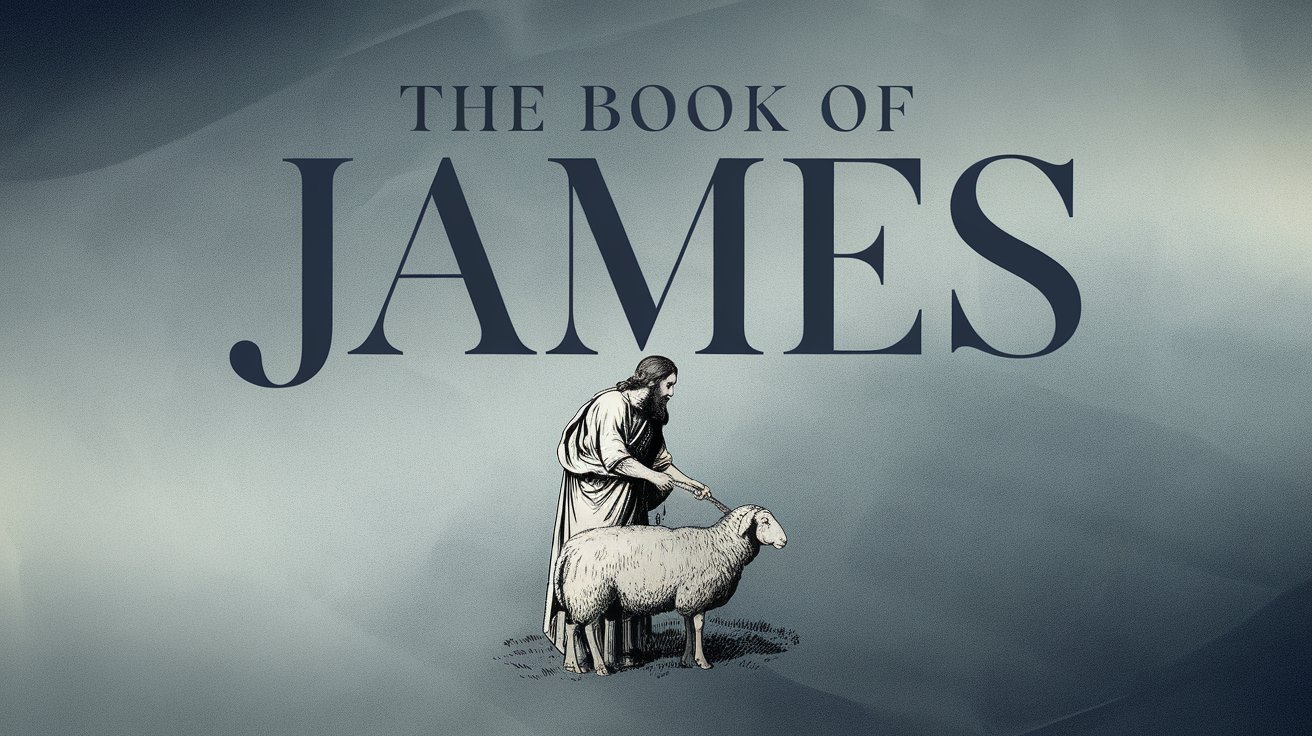When Life Gets Heavy: A Call to Patience, Prayer, and Community
What’s James 5 about?
James wraps up his letter with some of the most practical advice in the New Testament – how to handle suffering with patience, why your prayers actually matter more than you think, and what it looks like when a community genuinely cares for each other’s souls.
The Full Context
James 5 emerges from a Jewish-Christian context around 45-50 CE, when the early church was navigating the tension between their Jewish heritage and their newfound faith in Jesus. James, the half-brother of Jesus and leader of the Jerusalem church, was writing to Jewish believers scattered throughout the Roman Empire who were facing both external persecution and internal struggles with wealth disparity, patience, and authentic faith.
This final chapter serves as James’s pastoral crescendo, addressing three critical areas where faith meets real life: economic justice (James 5:1-6), patient endurance during suffering (James 5:7-12), and the power of community prayer and restoration (James 5:13-20). James isn’t just offering nice advice – he’s providing a survival guide for believers living in a world where faith is costly and community is essential.
What the Ancient Words Tell Us
The Greek word makrothumia in James 5:7 for “patience” literally means “long-tempered” – the opposite of being short-fused. It’s not passive waiting; it’s active endurance with a steady spirit. When James tells his readers to be patient “like the farmer,” he’s using an agricultural metaphor that would resonate deeply with his audience.
Grammar Geeks
The verb tense James uses for “be patient” (makrothumeō) is present imperative – meaning “keep on being patient” or “make it your ongoing practice.” This isn’t a one-time decision but a lifestyle of steady endurance.
The phrase about Elijah being “a man with a nature like ours” in James 5:17 uses homoiopathēs – literally “same-feeling” or “same-suffering.” James is demolishing the idea that effective prayer requires superhuman spirituality. Elijah had the same emotional ups and downs, the same struggles and doubts that we do.
What Would the Original Audience Have Heard?
When James warned the rich in James 5:1-6, his original readers would have immediately thought of the wealthy landowners who were oppressing Jewish farmers and workers. The imagery of “fattened your hearts in a day of slaughter” would have evoked the temple sacrifices – these rich people were living like cattle being fattened for slaughter, oblivious to coming judgment.
The reference to Elijah’s prayer stopping rain for three and a half years would have carried special weight for a Jewish audience familiar with the 1 Kings 17-18 narrative. They knew this wasn’t just about meteorology – it was about covenant faithfulness and God’s response to his people’s prayers.
Did You Know?
Archaeological evidence from the first-century Holy Land shows that tenant farmers often lived at subsistence level while wealthy landowners accumulated vast estates. James’s harsh words about wealth hoarding would have resonated with readers experiencing this economic reality firsthand.
Wrestling with the Text
Here’s where James gets challenging: he presents prayer as almost shockingly effective. “The prayer of a righteous person has great power as it is working” (James 5:16). The Greek word energeō for “working” gives us our word “energy” – prayer isn’t static but dynamically active.
But then we hit the tension: if prayer is this powerful, why do we experience unanswered prayers? James’s answer seems to lie in the context – he’s talking about community prayer for restoration, healing, and spiritual renewal. This isn’t about getting what we want; it’s about aligning with what God wants for his people.
Wait, That’s Strange…
James says Elijah “prayed earnestly” that it wouldn’t rain, but if you read 1 Kings 17:1, there’s no record of Elijah praying before announcing the drought. James seems to be filling in details from Jewish tradition or revealing the prayer life behind Elijah’s prophetic ministry that Scripture doesn’t explicitly record.
The call to “confess your sins to one another” in James 5:16 would have been countercultural in a shame-based society. Jewish culture valued honor and saving face, yet James is advocating for vulnerable transparency within the believing community.
How This Changes Everything
James 5 flips our understanding of several key areas. First, it redefines patience – not as passive resignation but as active, hope-filled endurance. The farmer doesn’t just sit around waiting for rain; he prepares, plants, and trusts the seasonal rhythms while working diligently.
Second, it democratizes prayer. James isn’t talking about professional clergy or spiritual elites – he’s talking about ordinary believers whose prayers carry extraordinary power. The qualifier “righteous person” doesn’t mean perfect person; it means someone who’s living in right relationship with God and others.
“Prayer isn’t about having the right words or the right posture – it’s about having the right heart alignment with God’s purposes.”
Finally, James presents community as essential for spiritual health. When someone is suffering, sick, or struggling with sin, the solution isn’t individual effort but community involvement. The “elders” he mentions weren’t just church officials but mature believers who could provide wisdom, prayer, and accountability.
Key Takeaway
True faith expresses itself through patient endurance during hardship, powerful prayer in community, and passionate care for one another’s spiritual restoration – because we serve a God who hears, responds, and restores.
Further Reading
Internal Links:
External Scholarly Resources:
- The Letter of James (NICNT) by Douglas Moo
- James (Baker Exegetical Commentary) by Craig Blomberg
- The Message of James (BST) by J.A. Motyer
Tags
James 5:1-6, James 5:7-12, James 5:13-20, James 5:16, patience, prayer, community, suffering, wealth, Elijah, confession, healing, restoration, endurance, faith, righteousness, church elders


